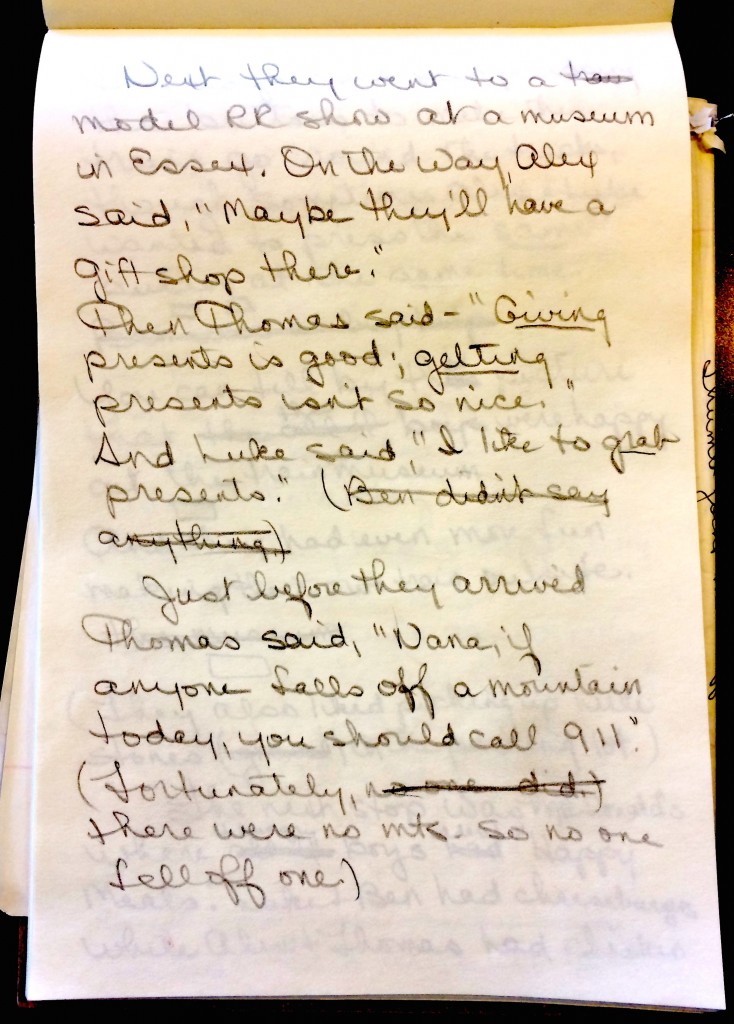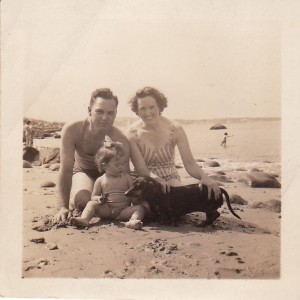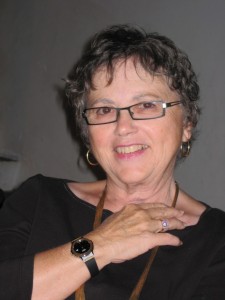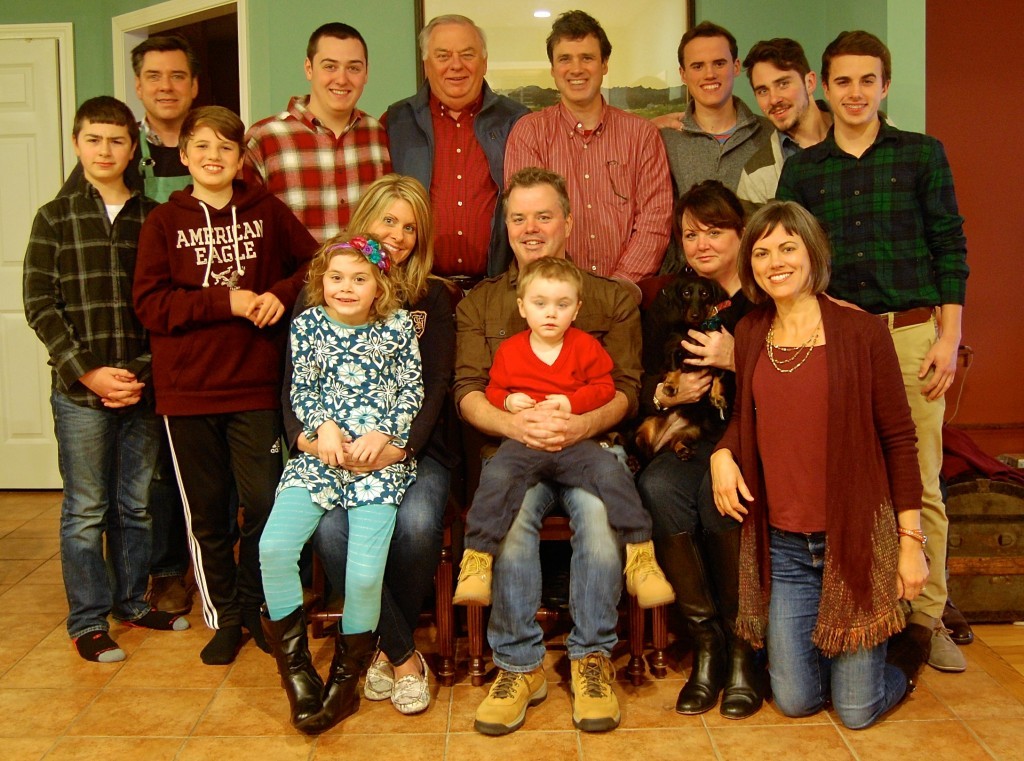Today is the first anniversary of my mother’s death, and so it seems like an appropriate, necessary time for a valediction—a farewell address reflecting on how I’ve fared without her in the past year. The word “valediction” even contains her name, “Val,” making it seem meet and proper to do so.
Less has changed than I expected—the anguished, desolate waste land I expected to be stranded in after her death never materialized. Instead, my grief has erupted in short bursts: in a sudden memory of her that forms in sharp relief against her absence, in the throb of desire to call her, or a groundswell of emotion when I put on a piece of her jewelry or try to read aloud “Christmas through the Knothole.” My emotions are closer to the surface, but my experience of grief is gentler, more akin to what John Donne describes in his “Valediction: Forbidding Mourning.” Donne tells his beloved that they should not mourn their physical separation, because their souls remain entwined:
Our two souls therefore, which are one,Though I must go, endure not yetA breach, but an expansion,Like gold to airy thinness beat.
Maybe one bright side of dementia is that the relentless progress of the disease produces not the violent breach of a swift, untimely death, but a thinning, dwindling of connection that could be reframed more positively as an expansion, in which a once close, tight bond is “like gold to airy thinness beat.”
Given how thin my connection to Mom felt in the final years of her illness, this first year without her doesn’t feel much different. We still can’t talk on the phone, yet she remains a strong presence in my life. She occasionally visits me in a dream, and it is her voice I hear most vividly. In her most recent dream visitation, she and my Dad were standing together looking at the hutch, and she was asking him about his arrangement of the items on display, curious about the changes he’d made in the short time she’d been gone. This was no angelic visitation delivering wisdom from beyond—just an ordinary appearance from Mom, who was still interested in the same things she’d always been interested in, including making sure everything in her home was artistically arranged.
One thing that has changed is her diagnosis. It turns out that she did not die from Alzheimer’s, but instead was afflicted by Lewy Body dementia—the second most common, but much less well known form of progressive dementia. It’s only recently gained a modicum of fame when Robin Williams was diagnosed with it.
My family members had different reactions to the autopsy report. Dad was fairly uninterested: it didn’t change the irrevocable fact of her death, or the inconsolable nature of his grief. My sister was relieved, because the researcher Dad spoke to said that Lewy Body dementia was rare in women and not hereditary. Not good news for my brother, so I didn’t ask him. I was curious, though, and immediately started researching, because medical knowledge always gives me a satisfying illusion of control over the disorderliness of human mortality.
Lewy Body’s dementia is probably more common than we think because it’s often misdiagnosed as Alzheimer’s or Parkinson’s, diseases with overlapping symptoms and brain deposits. No one knows what the cause, but according to the Mayo Clinic, the risk factors are:
- Being older than 60
- Being male
- Having a family member with Lewy body dementia
Although these factors imply that women are at less risk, the Lewy Body Dementia Association reports that the disease affects only “slightly more men than women.”
Which is to say that Mom’s postmortem diagnosis is not unusual or gender discriminate, and probably hereditary. It doesn’t improve the outlook for me or my siblings. If anything, our prospects may be bleaker, since less research is being conducted on Lewy Body dementia than on Alzheimer’s, so there may be less hope of a cure in our lifetimes.
The Lewy Body’s diagnosis doesn’t change the fundamental reality of my situation, which is this: I’ve gotta use my brain while I have it. No amount of worrying about glitches, lapses, and tip-of-the-tongue delays is gonna prevent the onslaught of the disease, if it’s headed my way. So carpe diem, Suzanne, and go hug someone you love.
The Lewy Body diagnosis doesn’t change much, but it does help me understand the progress of Mom’s disease, which was rapid, relentless, and unheroic. I remember reading an essay by a guy describing how his mother, though ravaged by Alzheimer’s, could still play the piano beautifully. I was pierced by what can only be called “affliction envy”: why couldn’t our Mom, who could play piano by ear ever since she was a child, continue to enjoy that gift in her illness? Instead of enjoying piano recitals in her final years, we got “organ recitals”—tedious recitations of every twinge and sensation in her irritable bowel.
Turns out that may have been the Lewy Bodies talking, as the disease affects digestion and bowel function. In fact, it affects not only the mind, but also a whole range of body functions, including motor coordination, sweating, sleeping, and heart rate. It made her hands shake and her feet unsteady. She was dizzy, dozy, and prone to falling, physically insecure and emotionally anxious. It can also induce hallucinations, which explains why Mom so often was visited by her long dead parents, or convinced that there was another Fred in the house.
Some of the behaviors that were most frustrating and symptoms that difficult to deal with can now be explained by the proteins clogging her brain. And knowing that gives me a sense of acceptance. I can let go of my affliction envy, because I know her illness followed its own natural course.
 But I’m not completely sanguine in my grief. What I miss most is the intrusiveness of her love—the nosy way she would want to know everything that was going in her children and grandchildren’s lives. The expansion of our bond “to an airy thinness beat” can feel natural and peaceful. But there is no substitute for the full force of a mother’s love, however uncomfortable, intrusive, or annoying it might feel. Because who else would be interested in how you were coping with your college-aged kids nocturnal schedules, or why you were annoyed with your sister, or even how you rearranged your hutch—even when you don’t feel like talking about it?
But I’m not completely sanguine in my grief. What I miss most is the intrusiveness of her love—the nosy way she would want to know everything that was going in her children and grandchildren’s lives. The expansion of our bond “to an airy thinness beat” can feel natural and peaceful. But there is no substitute for the full force of a mother’s love, however uncomfortable, intrusive, or annoying it might feel. Because who else would be interested in how you were coping with your college-aged kids nocturnal schedules, or why you were annoyed with your sister, or even how you rearranged your hutch—even when you don’t feel like talking about it?











